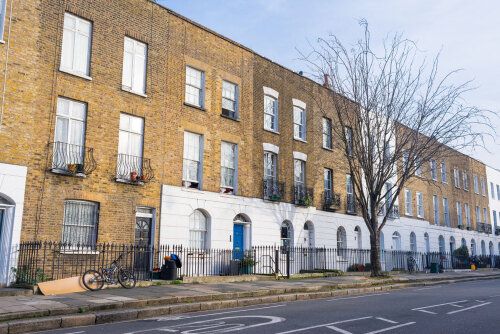Limited company mortgages: buy-to-let guide
In 2016, tax relief on mortgage interest repayments ended. Since then, a growing number of landlords have bought buy-to-let properties as a limited company rather than an individual to try and reduce their tax bill. As of 2021, a record number of landlords were buying properties through a limited company, and the figures look set to increase further. But what does that mean for you? Should your next property purchase be through a limited company, and how will it affect your mortgage? We've got everything you need to know about limited company mortgages below.
How are mortgages for limited companies different?
In the UK, landlords can purchase a buy-to-let property as a limited company through a Special Purpose Vehicle (SPV), which sees you buying as a company rather than an individual. As an SPV, you must specify the appropriate SIC (standard industrial classification) code and complete the set-up at Companies House.
Once you've incorporated the company, the mortgage process is similar to an individual application. The only real difference is that it will be under the company's name, of which you will most likely be the director.
Your company will still need to meet stress tests from the lender, with the predicted rental income of the property the most significant factor. Most SPV mortgage lenders require the rental income to cover between 125 and 145% of the mortgage interest payments (more on that shortly).
The lender may also ask you a set of questions, such as:
- How many properties do you own personally and in a limited company structure?
- The number of directors on the application (four is the usual limit)
- How many shareholders does the company have?
- Your credit history
- The property type
- Where the property is located
- The loan-to-value of the property
The only real difference between an individual mortgage and SPV is the questions you may be asked relating to the company, e.g. its formation and how you plan on structuring it.
How do costs compare?
Interest rates on buy-to-let mortgages taken out by a company tend to be higher than those paid by individuals. There may be some costs involved with setting up a limited company, and early mortgage repayment fees if you transfer ownership of an existing investment to a limited company. However, these additional costs are balanced against the greater tax efficiency of owning assets as a limited company.
Setting up the company
Setting up the SPV through Companies House is inexpensive and costs just £12. If you ask a solicitor to do it for you because you don’t want to go through the paperwork involved, costs can be considerably higher.
Tax efficiency
The primary reason landlords set up an SPV is to save on their tax bills. Not every landlord will save on tax by purchasing their buy-to-let through an SPV, but ones who are higher-rate taxpayers will most likely save some money by comparison with private property ownership.
With an SPV, you pay corporation tax rather than an income tax. Relief restrictions associated with personal income taxes, such as the phasing out of mortgage interest tax relief, don’t apply because you’re paying corporation tax.
SPVs have a lower tax on profits, as you pay 19% corporation tax on anything you make. If you own a property privately and are in a higher income tax bracket, you could pay as much as 40% or 45% on profits.
Please subscribe below to continue reading. Membership is free and you will gain exclusive access to key tips, insights, and analysis for landlords!




